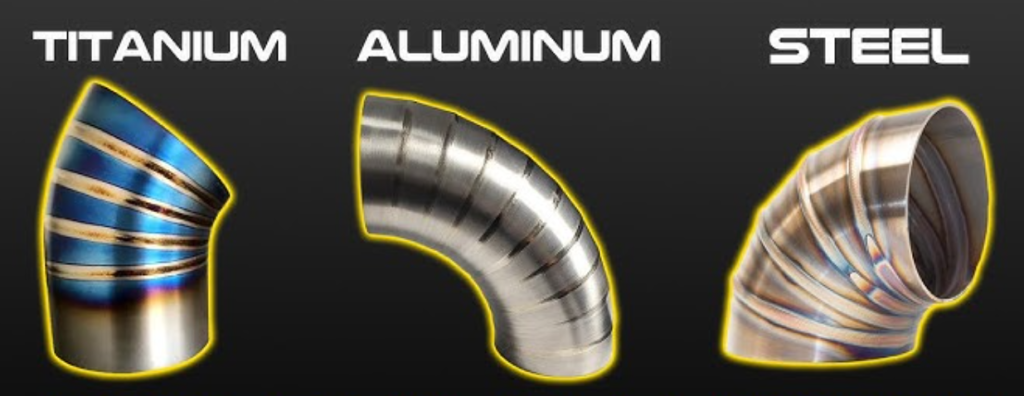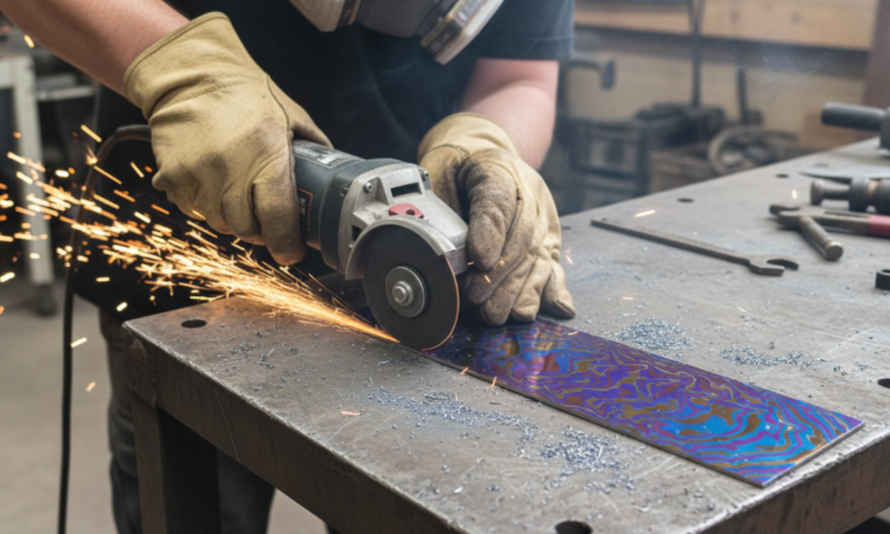
Challenges in Welding Titanium to Steel
Different Melting Points – Titanium melts at ~1,668°C, while steel melts at ~1,370–1,510°C. The imbalance causes weak joint structures.
Formation of Brittle Intermetallics – Direct welding leads to titanium-iron compounds that crack easily under stress.
Oxidation of Titanium – Titanium requires an oxygen-free environment, making welding operations complex.
Effective Techniques for Welding Titanium to Steel
Transition Layer Welding: Introducing a buffer material such as zirconium, nickel, or vanadium between titanium and steel. This prevents direct titanium-steel fusion and reduces brittleness.
Solid-State Welding: Techniques like friction welding or explosion welding avoid melting, allowing strong metallurgical bonds without brittle intermetallics.
Mechanical Joining: Using bolting, riveting, or cladding methods to avoid fusion entirely.
Bimetallic Inserts: Pre-fabricated titanium-steel transition joints enhance durability and weld reliability.
Ti Time Company – Expertise in Titanium-Steel Welding
At Ti Time Company, we combine decades of experience, expertise, and authority in titanium processing. Our team delivers tailored solutions for industries requiring titanium-to-steel joining, from aerospace and medical devices to chemical processing and marine engineering.
Custom Manufacturing – Ti Time provides bespoke titanium-steel welded products based on customer specifications.
Quality Assurance – Every joint undergoes rigorous inspection to guarantee structural integrity.
Innovation-Driven – Our R&D team continually refines welding methodologies for titanium alloys and hybrid metal structures.
Electropolished Titanium – As a leader in electropolishing, Ti Time ensures corrosion-resistant, smooth-surfaced titanium components.
Applications of Titanium-Steel Welding
Aerospace Engineering – Lightweight titanium parts integrated with durable steel frameworks.
Chemical Industry – Corrosion-resistant titanium components joined to robust steel piping systems.
Marine Engineering – Offshore structures requiring strength, durability, and corrosion resistance.
Medical Devices – Hybrid implants and surgical instruments combining steel strength and titanium biocompatibility.
FAQs – Welding Titanium to Steel
1. Why is it difficult to weld titanium directly to steel?
Because they form brittle intermetallic compounds and have mismatched melting points, leading to weak joints.
2. What is the best method to weld titanium to steel?
Solid-state welding (e.g., friction welding) or using a bimetallic transition insert is most effective.
3. Can TIG welding be used to weld titanium to steel?
Not directly. TIG is excellent for titanium-to-titanium welding but unsuitable for titanium-to-steel without a transition layer.
4. What industries use titanium-to-steel welding?
Aerospace, chemical processing, marine, and medical device manufacturing.
5. Does Ti Time Company offer custom titanium-steel welded products?
Yes, Ti Time specializes in custom manufacturing solutions for titanium-steel welding to meet specific client requirements.
Welding titanium to steel requires specialized knowledge, precision techniques, and advanced materials. Ti Time Company stands as a trusted supplier, delivering not only high-quality electropolished titanium but also customized titanium-steel welding solutions that guarantee strength, durability, and reliability. With expertise, innovation, and quality assurance, Ti Time is your go-to partner for complex titanium-steel joining projects.



